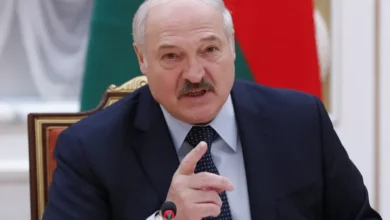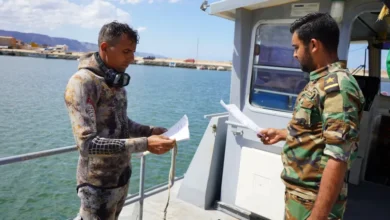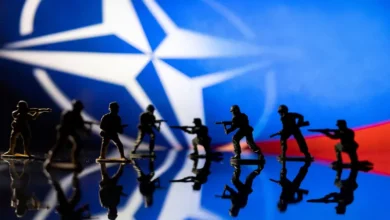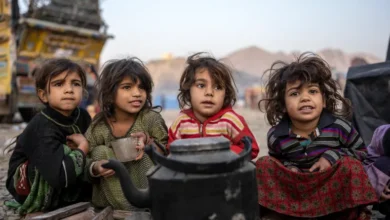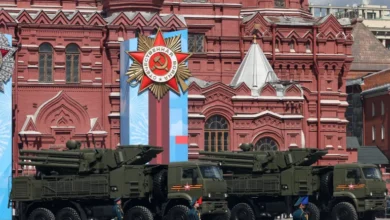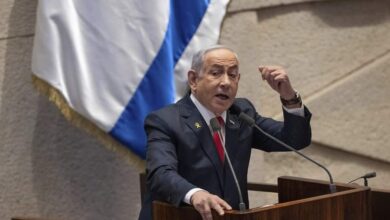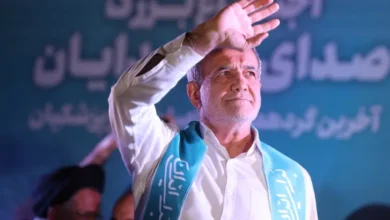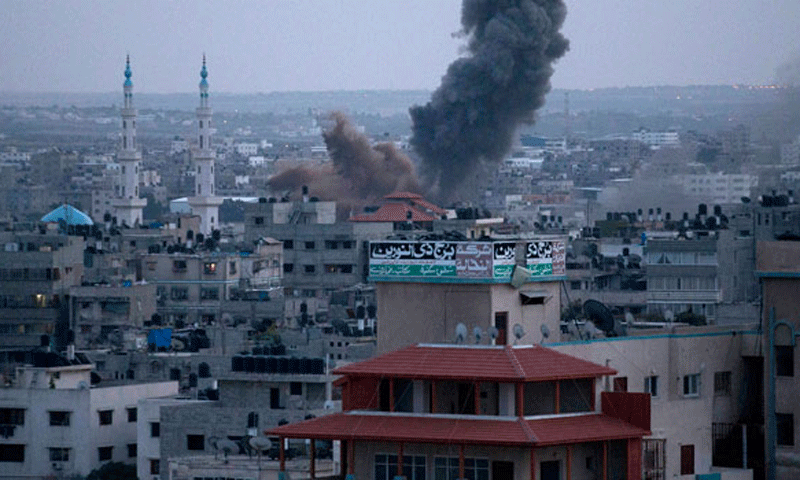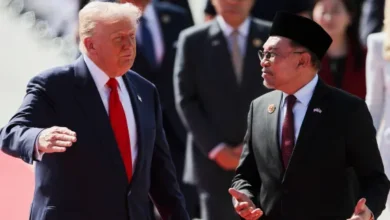Zelenskyy mocks Russian forces fighting for ‘credit’ over Soledar
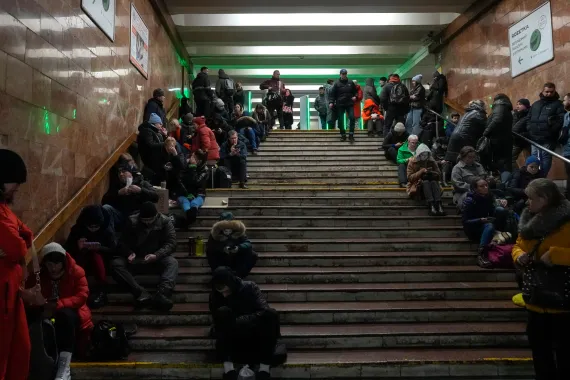
Ukrainian President Volodymyr Zelenskyy has mocked infighting between the Russian defence ministry and the Wagner mercenary group over who should take credit for efforts to seize the town of Soledar, saying it showed “a clear sign of failure for the enemy”.
In a late-night video address on Friday, Zelenskyy said the battles for Soledar and other eastern towns and cities in Ukraine were continuing despite competing claims by Wagner and the Russian government that it was their forces who had taken control of the salt-mining town.
Russia’s defence ministry said its forces had captured Soledar on Thursday evening, allowing them potentially to cut off Ukrainian supply routes to the city of Bakhmut, southwest of Soledar, and trap remaining Ukrainian forces there.
In its statement, the ministry credited the town’s seizure to Russian troops and aviation without mentioning the role of the Wagner group.
Wagner founder Yevgeny Prigozhin, who has harshly criticised the failings of the regular Russian army, had issued a premature claim earlier this week that Soledar had fallen. He also maintained the fighting there was exclusively being waged by his men.
In comments apparently aimed at Russia’s defence establishment, Prigozhin complained on Friday about “infighting, corruption, bureaucracy and officials who want to stay in their positions”, as well as what he called constant attempts to “steal victory” from Wagner.
In response, Russia’s defence ministry late on Friday issued a second statement seeking “to clarify” the situation and acknowledging the role of Wagner Group fighters in Soledar.
Russia has allowed Prigozhin to recruit tens of thousands of its prisoners for Wagner, which US officials say is a 50,000-strong force, and let him equip them with tanks, aircraft and missile defence systems.
According to Reuters, the Kremlin has also stood by while the Wagner boss has flung sometimes profane criticism at Russia’s top brass, although some Western military analysts suggested the recent appointment of the most senior Russian general to lead the war in Ukraine was designed to balance Prigozhin’s influence.
Despite its sometimes publicly strained ties with the Russian defence ministry, some Western military analysts suspect Wagner is closely affiliated with it.
One source close to the Russian authorities, who declined to be named because they were not authorised to speak to the media, told Reuters the Kremlin viewed Prigozhin as a useful operator but maintained unspecified safeguards in terms of his growing power.
“There is a ceiling (of growth) and mechanisms in place,” said the source, who declined to provide more details.
